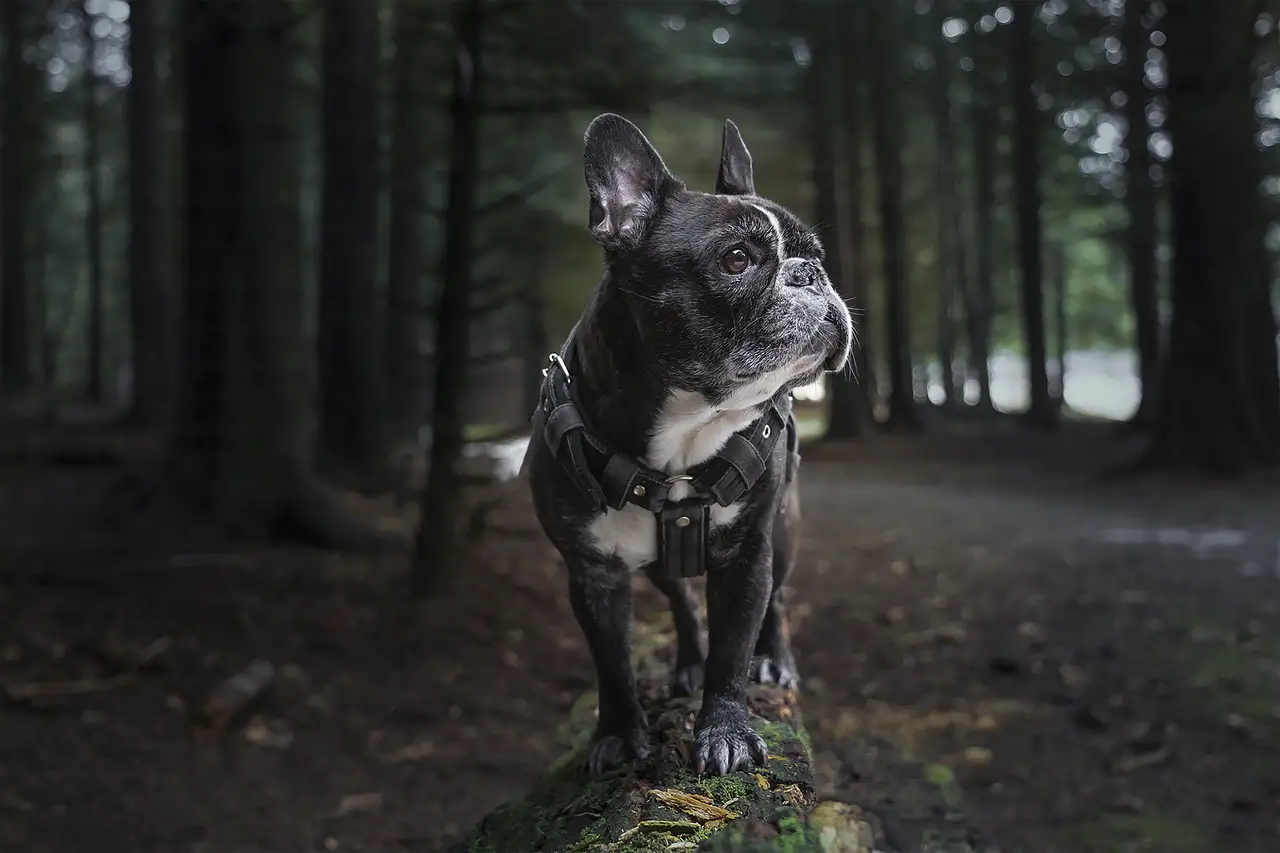

French Bulldogs have gained immense popularity in recent years due to their charming personalities and adorable looks. However, breeding these dogs requires careful consideration and responsible practices to ensure the health and well-being of the breed. In this guide, we will explore the importance of responsible breeding practices for French Bulldogs and provide you with all the information you need to know before embarking on this journey.
The importance of responsible breeding practices
Responsible breeding practices are crucial in maintaining the health and integrity of the French Bulldog breed. By adhering to these practices, breeders can help reduce the risk of genetic disorders and other health issues commonly associated with the breed. Additionally, responsible breeding ensures that each puppy is born into a loving and caring environment, setting them up for a healthy and happy life.
Understanding the French Bulldog breed
Before delving into the world of French Bulldog breeding, it is essential to have a comprehensive understanding of the breed. French Bulldogs are small, muscular dogs with a distinctive appearance characterized by their bat-like ears, compact bodies, and expressive eyes. They are known for their affectionate nature, playful temperament, and adaptability to various living environments.
French Bulldogs are prone to certain health conditions, including brachycephalic airway syndrome, hip dysplasia, and allergies. Understanding these potential health issues is crucial when selecting breeding pairs and conducting appropriate health screenings.
Health considerations in French Bulldog breeding
When breeding French Bulldogs, prioritizing the health of the breed should be the utmost concern. By conducting thorough health screenings and genetic testing, breeders can identify potential health risks and make informed decisions about suitable breeding pairs.
Genetic testing is essential to identify any hereditary diseases or conditions that may be present in the breeding stock. Tests for common genetic disorders such as hip dysplasia, eye diseases, and cardiac abnormalities should be performed to ensure the health of the offspring.
Additionally, regular veterinary check-ups and vaccinations are crucial to prevent the spread of diseases and maintain the overall health of the French Bulldogs involved in the breeding program.
Genetic testing and screening for responsible breeding
Genetic testing plays a vital role in responsible French Bulldog breeding. By identifying any potential hereditary diseases or conditions, breeders can make informed decisions when selecting breeding pairs. It is essential to work with a reputable veterinary geneticist who can guide you through the process and interpret the test results accurately.
Some of the most common genetic tests performed on French Bulldogs include tests for brachycephalic airway syndrome, hip and elbow dysplasia, patellar luxation, and various eye
diseases. These tests help ensure that the breeding stock is free from these conditions, reducing the risk of passing them on to the puppies.
Moreover, screening for other health concerns, such as cardiac abnormalities and allergies, should also be considered to maintain the overall health and well-being of the breed.
Selecting the right breeding pair
Choosing the right breeding pair is crucial in responsible French Bulldog breeding. It is essential to consider various factors, including temperament, health history, conformation, and genetic compatibility. By selecting a well-matched pair, breeders can increase the chances of producing healthy and well-balanced puppies.
Temperament is an important consideration when selecting a breeding pair. French Bulldogs are known for their friendly and affectionate nature, so it is crucial to choose individuals with stable and desirable temperaments to ensure the offspring inherits these traits.
Health history is another critical factor to consider. Both the male and female should undergo thorough health screenings and genetic testing to ensure they are free from any hereditary diseases or conditions that could be passed on to the puppies.
Conformation, or the physical structure of the dog, is also important. Breeding pairs should possess desirable breed characteristics and conform to the breed standards set by reputable kennel clubs. This helps maintain the breed’s integrity and ensures that the puppies will have the correct appearance.
Lastly, genetic compatibility plays a significant role in responsible breeding. Breeders should consider the potential genetic outcomes of the pairing to avoid any undesirable traits or health issues in the offspring.
Preparing for breeding – nutrition, exercise, and health checks
Preparing for breeding involves ensuring that both the male and female French Bulldogs are in optimal health and condition. Proper nutrition, regular exercise, and routine health checks are essential to ensure the best possible outcome.
A balanced and nutritious diet is crucial for the overall health and fertility of the dogs. High-quality dog food that meets the specific nutritional needs of French Bulldogs should be provided. It is advisable to consult with a veterinarian or canine nutritionist to determine the most appropriate diet for the breeding dogs.
Regular exercise helps keep the dogs physically fit and mentally stimulated. It is important to provide daily exercise, including walks and playtime, to keep the dogs in good shape before breeding.
Regular health checks are necessary to ensure that both the male and female dogs are in optimal health for breeding. These checks include vaccinations, parasite control, and overall physical examinations by a veterinarian.
The breeding process – natural breeding vs. artificial insemination
When it comes to breeding French Bulldogs, there are two main methods: natural breeding and artificial insemination. Both methods have their advantages and considerations, and breeders should carefully evaluate which option is most suitable for their specific situation.
Natural breeding is the traditional method where the male and female dogs mate naturally. This method allows for natural selection and ensures that the most suitable dogs are chosen for breeding. However, it requires careful supervision and monitoring to ensure successful mating and prevent any injuries or complications.
Artificial insemination (AI) is an alternative method that involves collecting semen from the male and introducing it into the female’s reproductive tract. AI allows breeders to overcome certain challenges, such as distance or physical limitations, and enables the use of frozen or chilled semen. It also reduces the risk of injury or aggression during mating. However, it requires specialized knowledge and equipment, and the success rate may vary.
Breeders should consider their specific circumstances, the health and temperament of the dogs, and seek guidance from a veterinarian or reproductive specialist to determine the most suitable method for their breeding program.
Pregnancy and whelping – caring for the mother and puppies
Once the breeding has been successful, the female French Bulldog enters the pregnancy phase. During this time, it is crucial to provide proper care and attention to ensure the health and well-being of both the mother and the puppies.
The pregnant dog should receive a balanced and nutritious diet to support her changing needs. Regular veterinary check-ups are essential to monitor the pregnancy’s progress, ensure the mother’s health, and detect any potential issues early on.
Creating a comfortable and safe whelping area is crucial for the mother to give birth and care for her puppies. The area should be warm, clean, and quiet, providing a sense of security for the mother. It is important to have the necessary supplies, such as clean bedding, heat sources, and whelping kits, readily available.
During the whelping process, it is important to closely monitor the mother and provide assistance if needed. Breeders should be prepared for potential complications, such as difficulty giving birth or the need for a caesarean section, and have a veterinarian on standby if necessary.
Early puppy care and socialization
Once the puppies are born, their care and socialization become paramount. Early puppy care involves ensuring proper nutrition, regular veterinary check-ups, and a controlled environment that promotes their health and development.
The puppies should receive their first veterinary examination within a few days of birth to check for any congenital abnormalities or health issues. Breeders should follow a deworming and vaccination schedule recommended by their veterinarian to protect the puppies from common diseases.
Proper nutrition is crucial during the early stages of a puppy’s life. The mother’s milk provides essential nutrients, but as the puppies grow, they will gradually transition to solid food. High-quality puppy food should be introduced gradually, following the guidance of a veterinarian or canine nutritionist.
Socialization is a critical aspect of puppy care. Exposing the puppies to various sights, sounds, and experiences from an early age helps them develop into well-rounded and confident dogs. Breeders should provide ample opportunities for socialization and ensure that the puppies are exposed to different people, animals, and environments in a positive and controlled manner.
Finding responsible homes for the puppies
Finding responsible and loving homes for the puppies is an important aspect of responsible French Bulldog breeding. Breeders should thoroughly screen potential owners to ensure they are committed to providing a lifetime of care and attention to the puppies.
Screening potential owners involves conducting interviews, asking for references, and visiting their homes to assess their suitability. Breeders should educate potential owners about the specific needs and characteristics of French Bulldogs to ensure they understand the responsibilities involved in owning the breed.
Additionally, breeders should provide comprehensive documentation, including health records, vaccination certificates, and registration papers, to the new owners. They should also offer ongoing support and guidance to ensure the puppies transition smoothly into their new homes.
Ethical considerations in French Bulldog breeding
Ethics should always be at the forefront of French Bulldog breeding. Breeders should prioritize the health and well-being of the dogs above all else and avoid any practices that may compromise the breed’s integrity.
Breeding should be done with the intention of improving the breed and preserving its unique characteristics. Breeders should refrain from producing puppies solely for profit or
engaging in unethical practices, such as breeding dogs with known health issues or promoting exaggerated physical features that may compromise the dog’s quality of life.
Responsible breeders should also be transparent and honest about the potential health risks associated with the breed. They should educate potential owners about the breed’s specific needs and inform them of any potential health issues that may arise in the future.
Resources for responsible French Bulldog breeding
Embarking on the journey of responsible French Bulldog breeding requires knowledge and resources. There are several reputable organizations, clubs, and online communities that provide valuable information and support to breeders.
Local kennel clubs and breed-specific organizations often have resources, educational materials, and mentoring programs for aspiring breeders. These organizations can provide guidance on responsible breeding practices, health testing, and breed standards.
Online forums and communities dedicated to French Bulldogs can also be excellent resources for breeders. They provide a platform for breeders to share experiences, exchange knowledge, and seek advice from experienced individuals in the field.
Additionally, attending dog shows, seminars, and workshops can offer valuable insights into responsible breeding practices and provide opportunities to connect with experienced breeders and experts.
Conclusion
Responsible French Bulldog breeding practices are essential to ensure the health, well-being, and preservation of the breed. By understanding the breed, conducting thorough health screenings, selecting the right breeding pairs, and providing proper care throughout the breeding process, breeders can contribute to the longevity and vitality of French Bulldogs.
Remember, responsible breeding goes beyond producing adorable puppies. It involves a commitment to the breed’s well-being, ethics, and the responsible placement of puppies in loving homes. By adhering to these principles, breeders can play an integral role in the future of French Bulldogs and ensure that this beloved breed continues to bring joy to families around the world.

